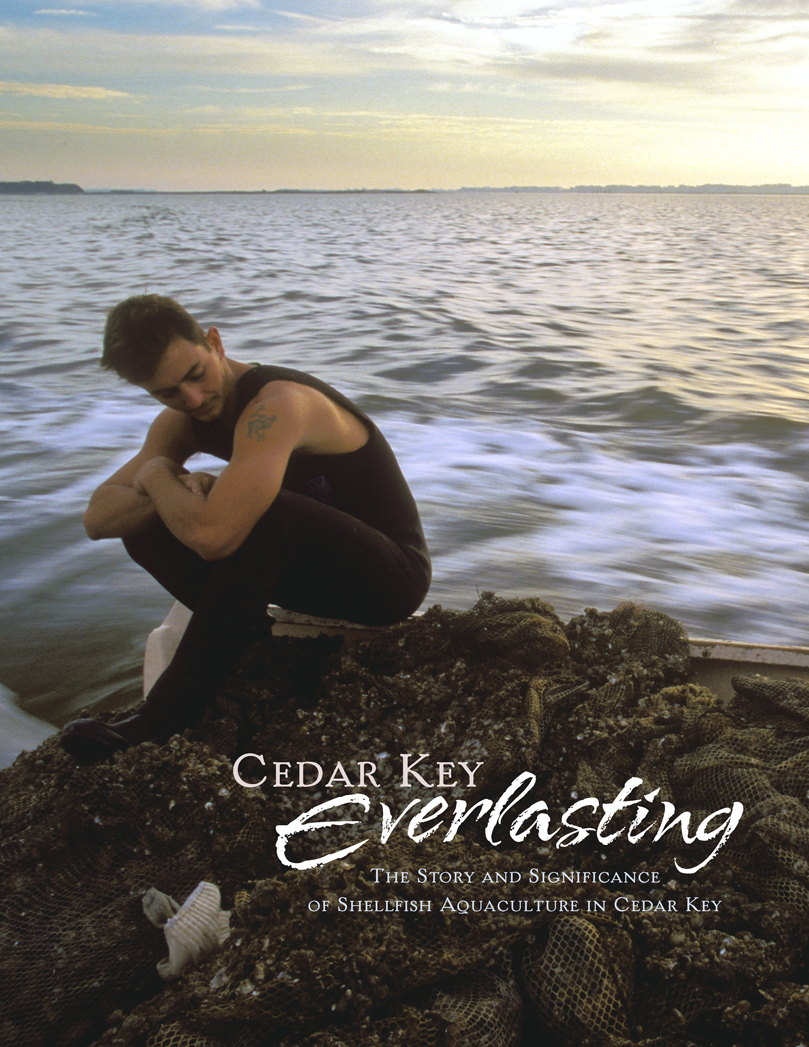

Located on a small island in the Gulf of Mexico, Cedar Key is a working waterfront community, rich in small town flavor with fewer than 800 residents. For most of the 20th century, Cedar Key remained a sleepy, ramshackle fishing village. However, during the 1990s, increasing regulations (oyster closures, net ban) affected the livelihoods of its fishing families. A transition to shellfish aquaculture as an alternative employment opportunity was facilitated through job retraining programs in the same decade. Today, clam farming adds an estimated $45 million a year into the area’s economy and supports over 500 jobs. Clam farming has enabled Cedar Key to continue with an industry connected to the sea.
Until recently, Cedar Key escaped the pull of developers despite its prime location. Over the past decade, word spread about this diverse, unspoiled region of Florida. Although several proposed developments are now on hold, Cedar Key has become a tourist destination. As harvesting of shellfish requires good water quality, future land-use activities could affect the industry’s continued viability. To educate the island’s visitors and new residents in an effort to inspire an appreciation for the community’s aquaculture and fishing industries, the Cedar Key Aquaculture Association partnered with UF IFAS Shellfish Extension Program in publishing Cedar Key Everlasting. The magazine-style publication consists of a series of essays contributed by experts in their fields, which inform readers of the environmental, economic, and sociological benefits of clam farming in Cedar Key. The photography of Eric Zamora and Carlton Ward, Jr. are featured throughout the publication. Their pictures capture the essence of the community in a way that engages readers and helps carry the science-based messages to broader audiences. The publication ends with recommendations about what one can do to help keep the coastal environment clean in order to sustain Cedar Key’s water-dependent livelihoods.
To reach the intended audiences, community leaders and businesses were invited to a social and clam bake on April 14, 2012, at which time the publication was premiered. Cynthia Barnett, journalist and award-winning author, read from the Foreword about her time spent in Cedar Key. Ms. Barnett also highlighted her new book, Blue Revolution: Unmaking America’s Water Crisis, a powerful meditation on water and community in America, in which she calls for a national water ethic. Following the event, local real estate agencies, condominium management firms, hotels, chamber of commerce staff, and others have been provided with additional copies and evaluation forms to capture the public’s responses.
Additional support for the publication was provided by the Florida Humanities Council with funding from the Florida Department of State, Division of Cultural Affairs. FHC is the state affiliate of the National Endowment for Humanities and funds and coordinates statewide public humanities programs and publications that explore the people, places, and ideas that shape our state.